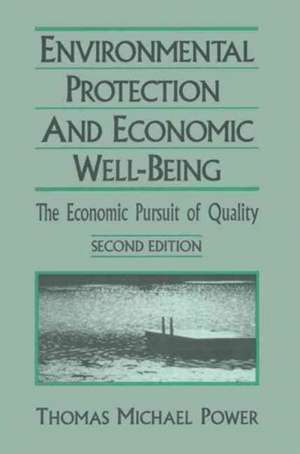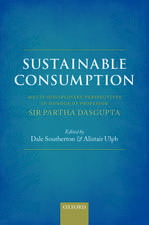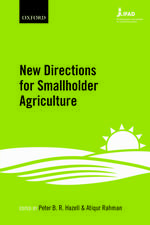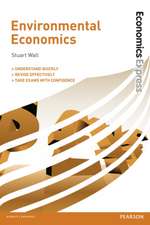Economic Development and Environmental Protection: Economic Pursuit of Quality
Autor Thomas Michael Poweren Limba Engleză Paperback – 31 mai 1996
| Toate formatele și edițiile | Preț | Express |
|---|---|---|
| Paperback (1) | 369.73 lei 43-57 zile | |
| Taylor & Francis – 31 mai 1996 | 369.73 lei 43-57 zile | |
| Hardback (1) | 1002.63 lei 43-57 zile | |
| Taylor & Francis – 31 mai 1996 | 1002.63 lei 43-57 zile |
Preț: 369.73 lei
Nou
Puncte Express: 555
Preț estimativ în valută:
70.76€ • 73.68$ • 59.80£
70.76€ • 73.68$ • 59.80£
Carte tipărită la comandă
Livrare economică 10-24 martie
Preluare comenzi: 021 569.72.76
Specificații
ISBN-13: 9781563247354
ISBN-10: 1563247356
Pagini: 272
Ilustrații: bibliography, index
Dimensiuni: 152 x 229 x 20 mm
Greutate: 0.45 kg
Ediția:2nd edition
Editura: Taylor & Francis
Colecția Routledge
Locul publicării:Oxford, United Kingdom
ISBN-10: 1563247356
Pagini: 272
Ilustrații: bibliography, index
Dimensiuni: 152 x 229 x 20 mm
Greutate: 0.45 kg
Ediția:2nd edition
Editura: Taylor & Francis
Colecția Routledge
Locul publicării:Oxford, United Kingdom
Cuprins
chapterOne The Power and Mystique of Economics: Sharing the Power, Eliminating the Magic; chapterTwo The Dominance of Quality in Economic Pursuits: Survival Needs, Food, and Health Care; chapterThree The Dominance of Quality in Economic Pursuits, Continued: Clothing, Housing, and Stone Age Economics; chapterFour The Economic Pursuit of Quality in a Noncommercial Setting; chapterFive Profaning the Sacred? Economic Valuation of the Natural Environment; chapterSix Beauty and the Beast: Quantitative Evidence on the Economic Importance of Environmental Quality; chapterSeven The Economic Base: Distracting Vision, Distorting Reality; chapterEight Economic Growth and Local Economic Well-Being; chapterNine The Self-Defeating Strategies of Quantitative Growth; chapterTen The Local Pursuit of Quality: A “Can’t-Lose” Economic-Development Strategy; chapterEleven Grander Visions, Grander Problems;
Descriere
This text takes issue with the notion that economic well-being of people derives only from quantitatively expanding commercial business activity. It argues that economic qualities flow from the natural and social environment, and that they are public, not private, in character.



















